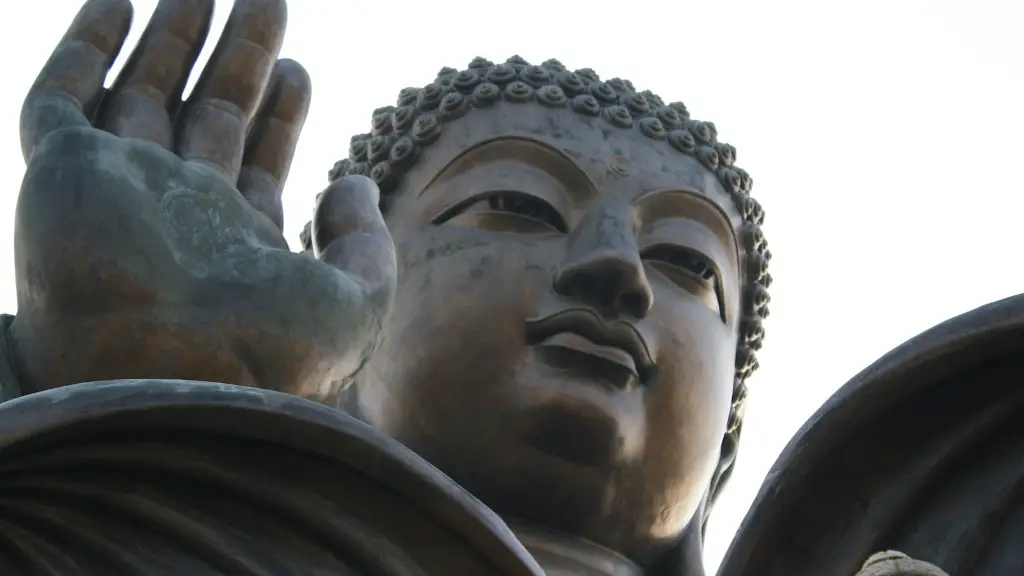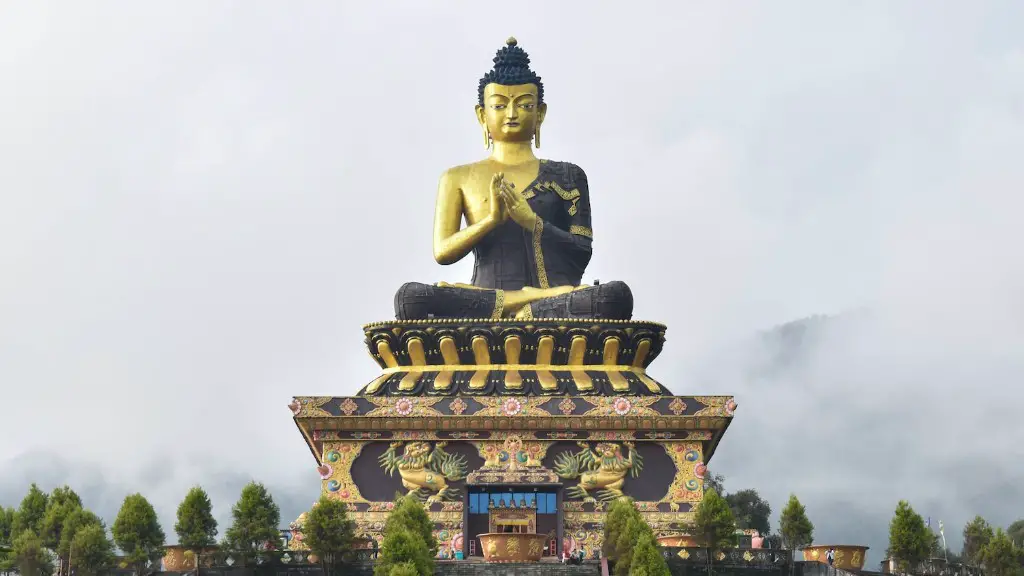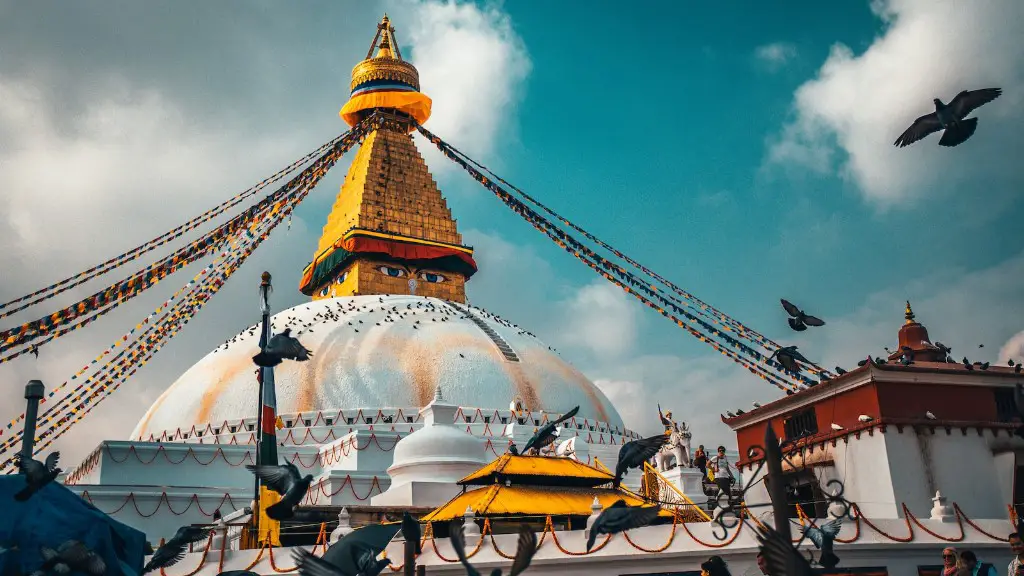The Dalai Lama is the head monk of the Gelug school of Tibetan Buddhism. The Gelug school is the newest of the schools of Tibetan Buddhism and is known as the “Yellow Hat” school. The Dalai Lama is considered to be the reincarnation of the Buddha of Compassion and is thus responsible for the welfare of all sentient beings.
The Dalai Lama is a high lama in the Gelugpa lineage of Tibetan Buddhism. The title Dalai Lama is given to the spiritual leader of the Tibetan people.
What is the Dalai Lama known for?
The Dalai Lama is a religious and political leader who has been in exile in India since 1959. He has advocated for peace and freedom for Tibetans under Chinese occupation. He has been awarded the Nobel Peace Prize for his efforts to promote peace and non-violence.
The Dalai Lama is the spiritual leader of the Tibetan people. The title Dalai Lama comes from the Mongolian word dalai meaning “ocean” or “big” and the Tibetan word bla-ma meaning “master, guru”. The current Dalai Lama is Tenzin Gyatso, who was born in 1935.
What is a lama in Buddhism
A lama is a Tibetan Buddhist spiritual leader. They are often the head of a monastery, but can also be respected monks or priests. The term “lama” is used out of courtesy to any respected figure in the Tibetan Buddhist community.
Buddhism is a religion with a long and complex history. It is one of the largest religions in the world and has millions of followers. Buddhism originated in India over 2,500 years ago and has since spread to other parts of Asia and the world.
Buddhists believe that life is full of suffering and that the only way to achieve true happiness is through meditation, spiritual and physical labor, and good deeds. Buddhists strive to live in harmony with all beings and to help those in need. If you are interested in learning more about Buddhism, there are many resources available online and in libraries.
What are the 4 Buddhist truths?
The Four Noble Truths are the heart of the Buddha’s teachings. They show us the way to end suffering and find lasting happiness.
The first Noble Truth is that there is suffering in life. This may seem obvious, but it’s important to understand that suffering comes from our own expectations and desires. We suffer when things don’t go the way we want them to, when we don’t get what we want, or when we lose something we cherish.
The second Noble Truth is that the cause of suffering is our own grasping and attachment. We suffer because we want things to be a certain way and we get upset when they’re not. We cling to things that we think will make us happy, but in reality, they only bring us more suffering.
The third Noble Truth is that there is an end to suffering. This is the good news! We can be free from suffering if we let go of our attachment and desires.
The fourth Noble Truth is the path that leads to the end of suffering. This path is called the Eightfold Path. It includes right understanding, right thought, right speech, right action, right livelihood, right effort, right mindfulness, and right concentration.
By following the Eightfold Path,
Dalai Lama is the head of the Dge-lugs-pa (Yellow Hat) order of Tibetan Buddhists, and was both the spiritual and temporal ruler of Tibet until 1959. He is highly respected by Buddhists all over the world, and his teachings are followed by many.
Does the Dalai Lama believe Buddhism is a religion?
The Dalai Lama is right that all religions teach love and compassion, not anger and hatred. However, he is wrong to say that a person cannot believe in a single, personal, Western form of God and also be a Buddhist. Buddhism is not about belief in a specific God or gods; it is about waking up to the true nature of reality.
The Dalai Lama said Friday that the Buddhist tradition is very liberal, having equal rights for both genders, and that there could be a “female Dalai Lama” in the future. He made the comments during a meeting with students and faculty at the Massachusetts Institute of Technology.
Does Buddhism have a leader
Buddhists believe in the doctrine of karma, which teaches that one’s actions have consequences in this life and in future lives. One of the goals of Buddhism is to end the cycle of rebirth, and karma is one of the means by which this is achieved.
Karma Lekshe Tsomo is a professor of religious studies and the founding director of the Jamyang Foundation, a Tibetan Buddhist organization that provides education and training for nuns and laywomen. Tsomo is also the author of several books, including Sakyadhita: Daughters of the Buddha, which discusses the role of women in Buddhism.
In an interview with Tricycle Magazine, Tsomo discusses the importance of karma in Buddhist practice:
“People often ask me, ‘What is the single most important teaching of Buddhism?’ And my answer is always karma. Of course, the Buddha taught many things, but if you understand karma, then you understand the basic structure of reality. And if you understand the basic structure of reality, then you can begin to work skillfully with your own life.”
Tsomo goes on to say that “karma is not just about cause and effect; it’s also about interdependence. Nothing exists independently; everything is connected to
Lama is a title officially extended to the few dozen Tibetan Buddhist monks who have achieved the highest level of spiritual development. In informal conversation, lama is used to refer to any Tibetan Buddhist monk.
What are the 3 sins in Buddhism?
The Three Poisons are the basic causes of suffering, and are represented by a rooster (greed), a pig (ignorance) and a snake (hatred). These poisons lead to attachment, which is the root of all suffering. To end suffering, we must develop the wisdom to see things as they really are, and the compassion to act in ways that are helpful, not harmful.
Nirvana is the goal of Buddhism and is believed to be attainable only with the elimination of all greed, hatred, and ignorance within a person. Nirvana signifies the end of the cycle of death and rebirth.
Can a Buddhist believe in god
Buddhism is a religion that does not include the belief in a creator deity, or any eternal divine personal being. This may be one of the reasons why it is attractive to many people who are seeking a spiritual path that is not based on a belief in a personal God. For some, the absence of a belief in a creator deity may make Buddhism seem more like a philosophy or way of life than a religion.
Buddhism teaches that life and death are interconnected, and that consciousness (the spirit) continues after death. Death can be an opportunity for liberation from the cycle of life, death and rebirth.
What is the symbol for Buddhism called?
The Dharma wheel is a symbol of the Buddhist teachings, which are known as the Dharma. The wheel represents the cycle of birth and death, as well as the path to enlightenment. The Dharma wheel is also a symbol of the Buddha’s teaching of the Four Noble Truths.
The Dharma Wheel is the most important symbol of Buddhism. It is said that the Buddha turned the wheel when he gave his first teaching after enlightenment. The wheel represents the Buddha’s teachings and the path to enlightenment.
Who is considered god in Buddhism
Buddhism is a religion that does not believe in a supreme god or deity. Instead, followers of Buddhism focus on achieving enlightenment—a state of inner peace and wisdom. When followers reach this spiritual echelon, they are said to have experienced nirvana. The religion’s founder, Buddha, is considered an extraordinary being, but not a god.
Buddhavacana texts are a very important part of Buddhist scripture. They are generally seen as in accord with the Dharma, or the teachings of the historical Buddha. This makes them a very valuable resource for those seeking to understand the Buddha’s teachings.
Final Words
The Dalai Lama is the highest authority in the Gelugpa branch of Tibetan Buddhism. He is considered to be a living Buddha and is the leader of the Tibetan people.
The Dalai Lama is the spiritual leader of Tibet and the Tibetan people. He is a follower of the Gelugpa school of Tibetan Buddhism, and is considered to be a living Buddha. The Dalai Lama has a central role in the Tibetan Buddhist belief system, and is respected by Buddhists all over the world.




